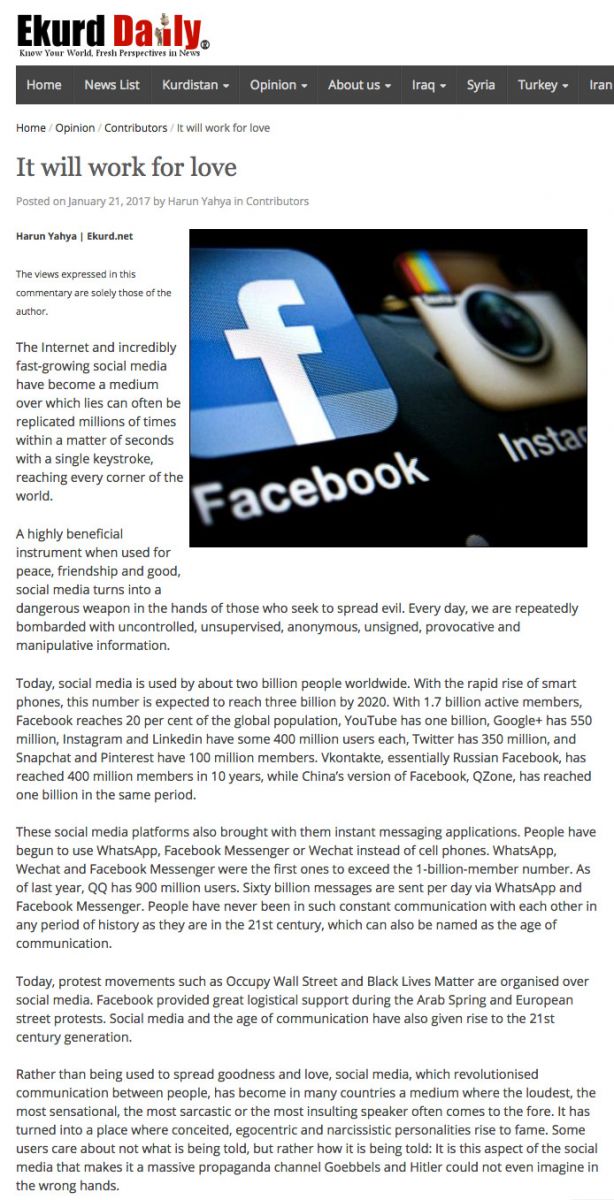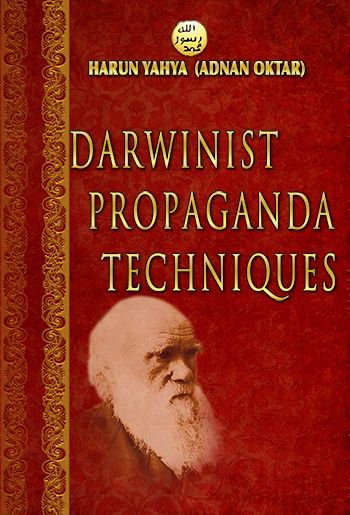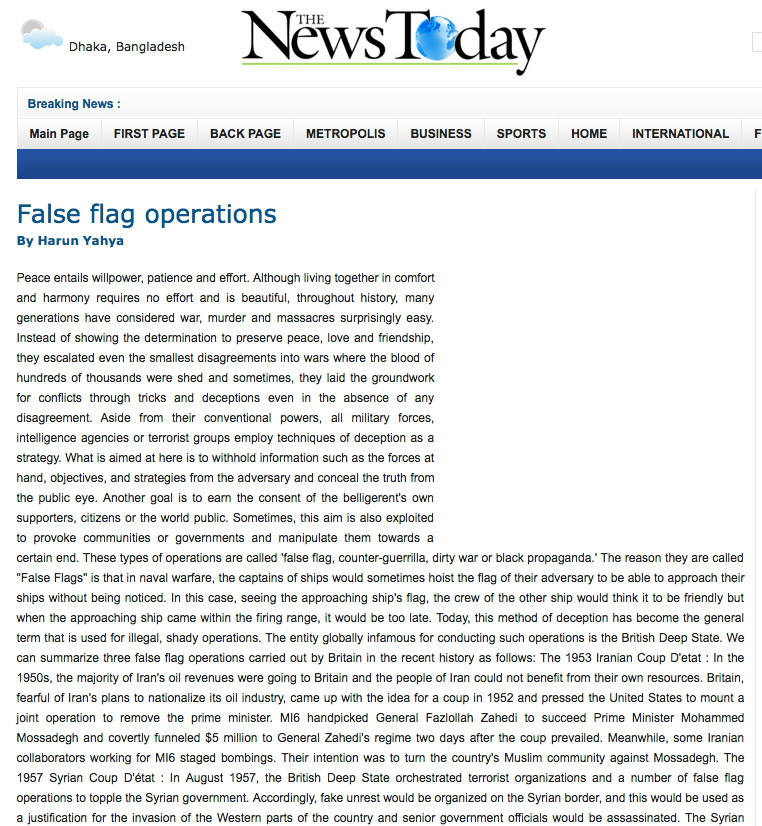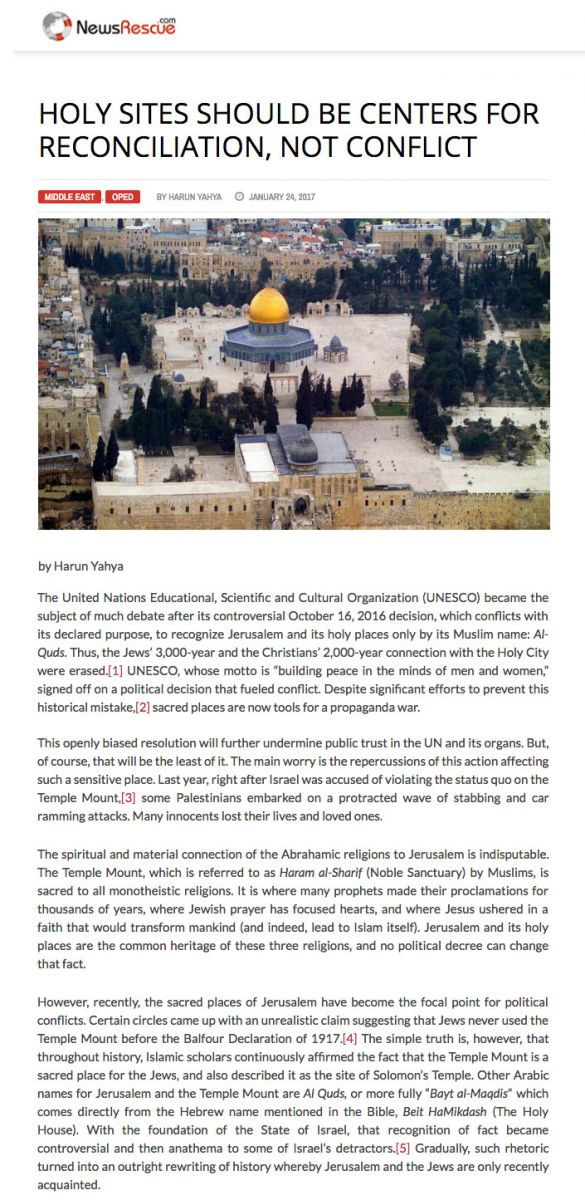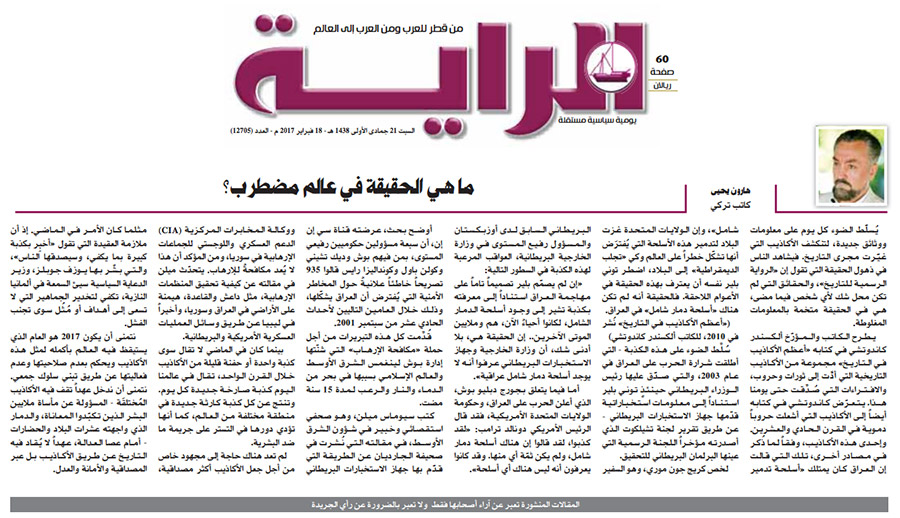Bigotry: The Dark Danger
It will work for love
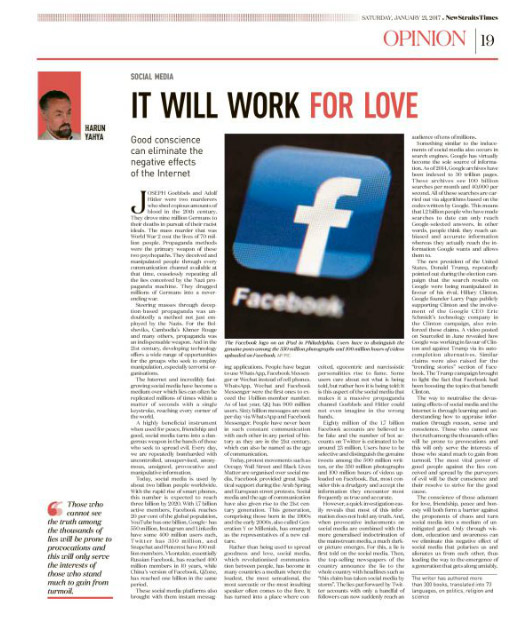
Joseph Goebbels and Adolf Hitler were two murderers who shed copious amounts of blood in the 20th century. They drove nine million Germans to their deaths in pursuit of their racist ideals. The mass murder that was World War 2 cost the lives of 70 million people. Propaganda methods were the primary weapon of these two psychopaths. They deceived and manipulated people through every communication channel available at that time, ceaselessly repeating all the lies conceived by the Nazi propaganda machine. They dragged millions of Germans into a never-ending war.
Steering masses through deception-based propaganda was undoubtedly a method not just employed by the Nazis. For the Bolsheviks, Cambodia’s Khmer Rouge and many others, propaganda was an indispensable weapon. And in the 21st century, developing technology offers a wide range of opportunities for the groups who seek to employ manipulation, especially terrorist organisations.
The Internet and incredibly fast-growing social media have become a medium over which lies can often be replicated millions of times within a matter of seconds with a single keystroke, reaching every corner of the world.
A highly beneficial instrument when used for peace, friendship and good, social media turns into a dangerous weapon in the hands of those who seek to spread evil. Every day, we are repeatedly bombarded with uncontrolled, unsupervised, anonymous, unsigned, provocative and manipulative information.
Today, social media is used by about two billion people worldwide. With the rapid rise of smart phones, this number is expected to reach three billion by 2020. With 1.7 billion active members, Facebook reaches 20 per cent of the global population, YouTube has one billion, Google+ has 550 million, Instagram and Linkedin have some 400 million users each, Twitter has 350 million, and Snapchat and Pinterest have 100 million members. Vkontakte, essentially Russian Facebook, has reached 400 million members in 10 years, while China’s version of Facebook, QZone, has reached one billion in the same period.
These social media platforms also brought with them instant messaging applications. People have begun to use WhatsApp, Facebook Messenger or Wechat instead of cell phones. WhatsApp, Wechat and Facebook Messenger were the first ones to exceed the 1-billion-member number. As of last year, QQ has 900 million users. Sixty billion messages are sent per day via WhatsApp and Facebook Messenger. People have never been in such constant communication with each other in any period of history as they are in the 21st century, which can also be named as the age of communication.
Today, protest movements such as Occupy Wall Street and Black Lives Matter are organised over social media. Facebook provided great logistical support during the Arab Spring and European street protests. Social media and the age of communication have also given rise to the 21st century generation. This generation, comprising those born in the 1990s and the early 2000s, also called Generation Y or Millenials, has emerged as the representatives of a new culture.
Rather than being used to spread goodness and love, social media, which revolutionised communication between people, has become in many countries a medium where the loudest, the most sensational, the most sarcastic or the most insulting speaker often comes to the fore. It has turned into a place where conceited, egocentric and narcissistic personalities rise to fame. Some users care about not what is being told, but rather how it is being told: It is this aspect of the social media that makes it a massive propaganda channel Goebbels and Hitler could not even imagine in the wrong hands.
Eighty million of the 1.7 billion Facebook accounts are believed to be fake and the number of bot accounts on Twitter is estimated to be around 23 million. Users have to be selective and distinguish the genuine tweets among the 500 million written, or the 350 million photographs and 100 million hours of videos uploaded on Facebook. But, most consider this a drudgery and accept the information they encounter most frequently as true and accurate.
However, a quick investigation easily reveals that most of this information does not hold any truth. And, when provocative inducements on social media are combined with the more generalised indoctrination of the mainstream media, a much darker picture emerges. For this, a lie is first told on the social media. Then, the top-selling newspapers of the country announce the lie to the whole country with headlines such as “this claim has taken social media by storm”. The lies put forward by Twitter accounts with only a handful of followers can now suddenly reach an audience of tens of millions.
Something similar to the inducements of social media also occurs in search engines. Google has virtually become the sole source of information. As of 2014, Google archives have been indexed to 30 trillion pages. These archives see 100 billion searches per month and 40,000 per second. All of these searches are carried out via algorithms based on the codes written by Google. This means that 1.2 billion people who have made searches to date can only reach Google-selected answers. In other words, people think they reach unbiased and accurate information whereas they actually reach the information Google wants and allows them to.
The new president of the United States, Donald Trump, repeatedly pointed out during the election campaign that the search results on Google were being manipulated in favour of his rival, Hillary Clinton. Google founder Larry Page publicly supporting Clinton and the involvement of the Google CEO Eric Schmidt’s technology company in the Clinton campaign, also reinforced these claims. A video posted on Sourcefed in June revealed how Google was working in favour of Clinton and against Trump via its auto-completion alternatives. Similar claims were also raised for the “trending stories” section of Facebook. The Trump campaign brought to light the fact that Facebook had been boosting the topics that benefit Clinton.
The way to neutralise the devastating effects of social media and the Internet is through learning and understanding how to appraise information through reason, sense and conscience. Those who cannot see the truth among the thousands of lies will be prone to provocations and this will only serve the interests of those who stand much to gain from turmoil. The most vital power of good people against the lies conceived and spread by the purveyors of evil will be their conscience and their resolve to strive for the good cause.
The conscience of those adamant for love, friendship, peace and honesty will both form a barrier against the proponents of chaos and turn social media into a medium of unmitigated good. Only through wisdom, education and awareness can we eliminate this negative effect of social media that polarises us and alienates us from each other, thus leading the way to the emergence of a generation that gets along amiably.
Adnan Oktar's piece in New Straits Times & EKurd Daily:
http://www.nst.com.my/news/2017/01/205947/it-will-work-love
http://ekurd.net/will-work-love-2017-01-21
